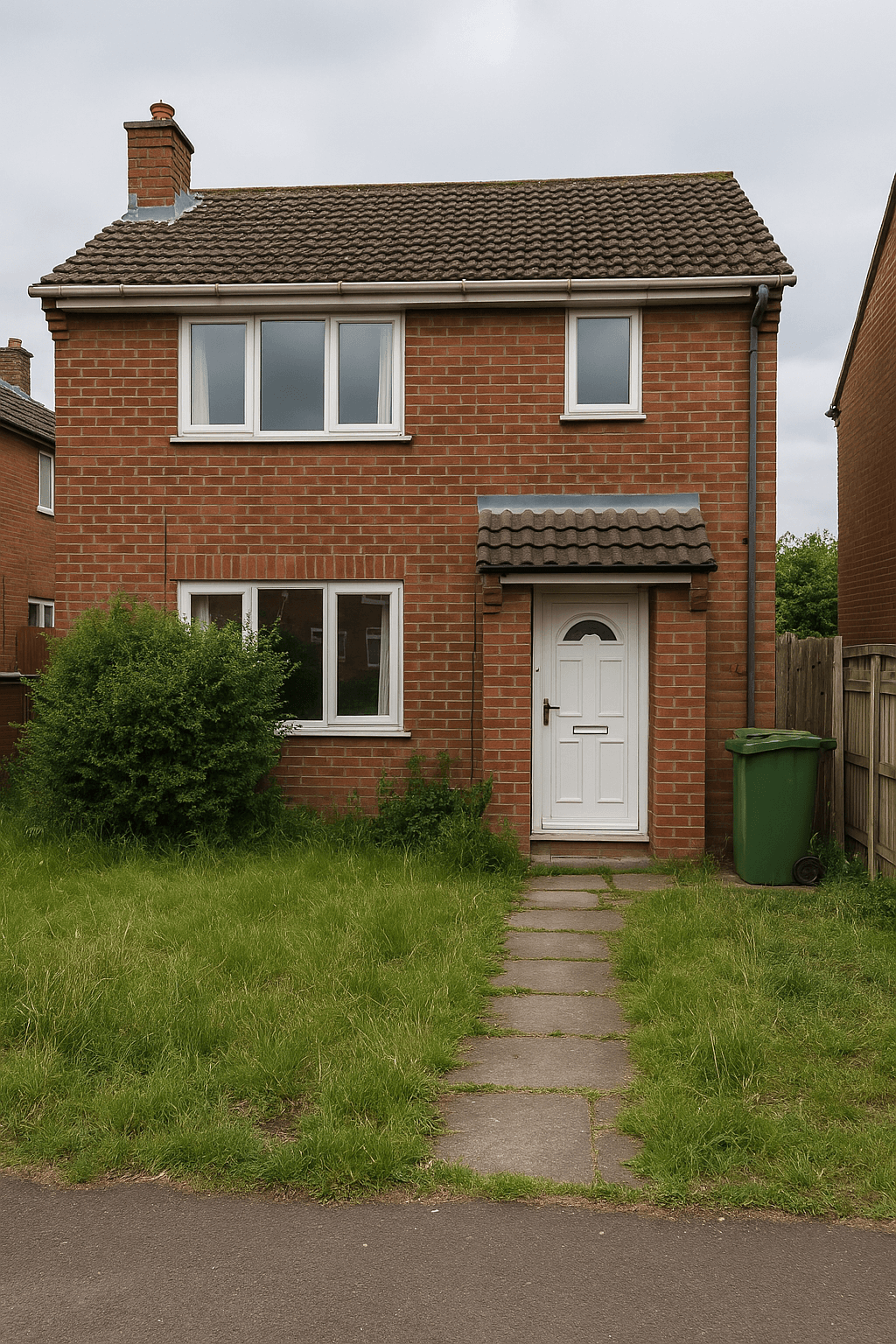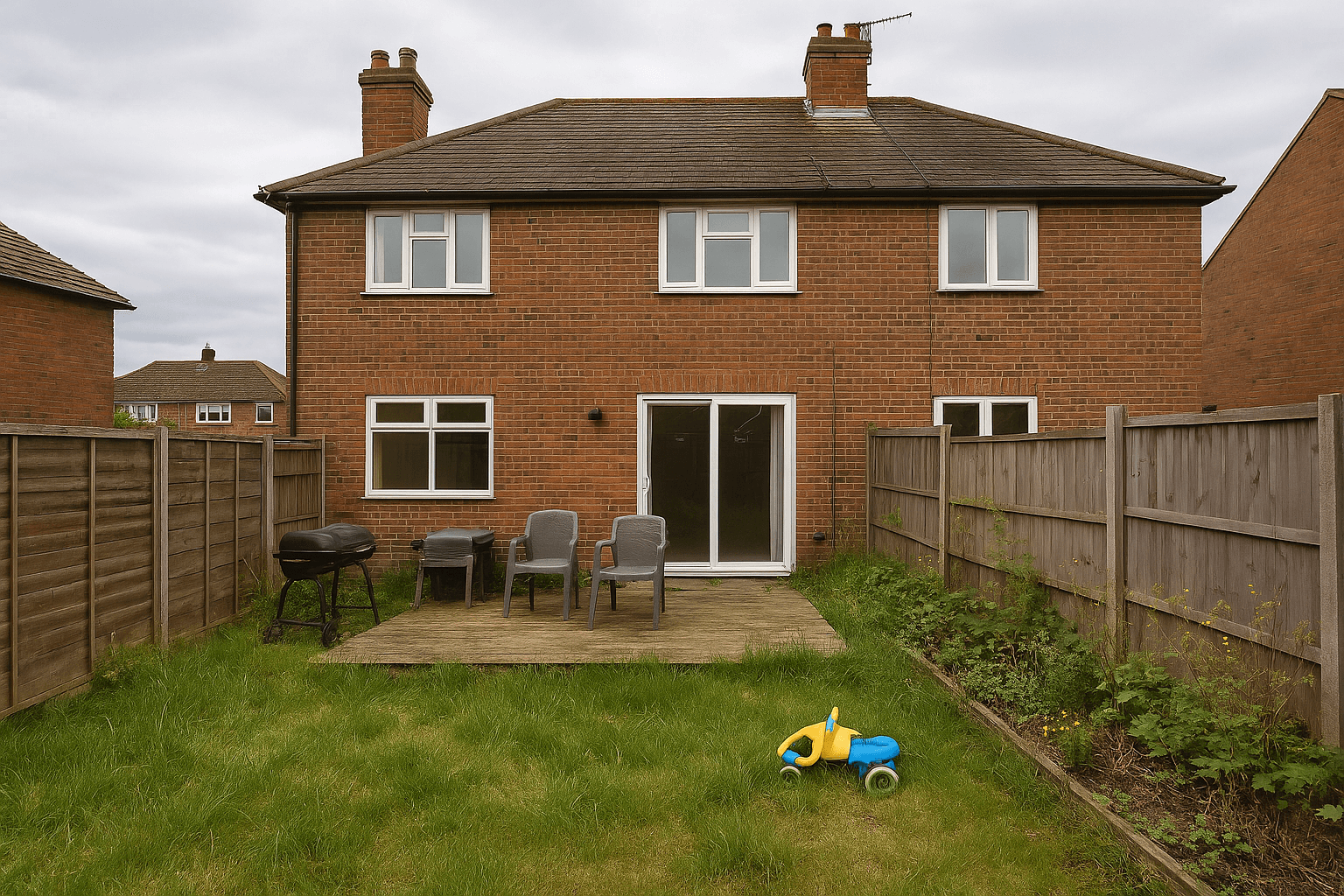Glass Balustrade Installation: The Complete Guide
Installing glass balustrade can be an ideal way to add safety and style to an existing deck, walkway or other
Products in Stock
Lowest Prices
Express Delivery
10-Year Warranty
March Sale. Up To 15% Off.
For many, the garden is a labour of love. After hours spent weeding, watering, and nurturing it throughout the spring, summer is the time to sit back, show it off to family and friends, and enjoy the fruits (and flowers) of all that hard work.
However, recent survey data have revealed that over half of UK homeowners (54.9%) say their garden’s condition has prevented them from actually using it.
To uncover how neglected gardens are quietly impacting the lifestyle, mental health, and kerb-side appeal of Brits, we conducted a nationwide survey of 1,000 homeowners in Summer 2025, revealing just how costly an untended garden can be.
From broken decking and overgrown weeds to mental stress and social embarrassment, gardens are more than cosmetic. With summer in full swing, join us as we reveal how garden embarrassment is impacting Brits nationwide.
Richard King, director at Dino Decking, comments:
“Your garden should be a source of joy and relaxation. Neglected outdoor spaces don’t just affect how your home looks; they impact how you feel. Even small improvements like clearing clutter, trimming back overgrowth, or refreshing tired decking can completely transform the space and your mindset. A well-kept garden invites you to spend more time outdoors, which is great for both mental health and overall well-being.”
According to the data, a staggering 97.5% of homeowners stated that a tidy, well-designed garden is very important to the overall impression of a home.
Taking this into consideration, we chose to test our participants on the value of kerb-side appeal. We asked the participants what, if anything, are the first three things they notice when looking at the following image of a typical British front garden.

For many, this front garden might seem perfectly fine, but several overlooked details could significantly affect how others perceive your home.
Of the 1,000 Brits surveyed, 85.9% reported noticing uncut grass, 61.0% noted untrimmed bushes, closely followed by the wheelie bins (56.1%).
It’s easy to miss these details in our front gardens, especially when we’re rushing out the door for the school run or pulling in after a long day. However, while we might tune them out, our survey shows that visitors, passers-by, or potential buyers spot them instantly, which can have a big impact on first impressions and even the value of your home.
We partnered with James Newman, Residential Sales Manager at John Roberts & Co Estate Agents, to reveal how kerb-side appeal can affect the value of a home.
“A scruffy or poorly maintained garden can have a significant impact on the sale of your home. First impressions are important, and for many buyers, the garden is the first thing they see, so if it is overgrown, cluttered, or neglected, it can create doubts about how well the rest of the property has been maintained.”
James adds,
“It can affect the property’s value as buyers may factor in the cost and effort needed to improve the garden and use that as a reason to negotiate on price. In some cases, it could knock thousands off your expected sale price, especially if the rest of the property is otherwise well presented.”
“An unkempt garden can reduce the number of viewings and cause the property to sit on the market longer. Poor curb appeal can make it harder for buyers to form that all-important first emotional connection with a home.
“That said, not all buyers are put off. Some will look past the weeds and overgrown bushes and see the potential for transformation. These buyers often value location, layout, and structure more than surface-level presentation. However, they tend to be in the minority, and even when they’re interested, they may still use the garden’s condition as leverage to negotiate a lower offer.”

It’s not only front gardens that face judgment. Our research found that back gardens are just as closely scrutinised.
When respondents were shown the above image of a typical private garden, they quickly picked out what stood out most. Children’s toys were the most commonly noticed feature (76.2%), followed by uncut grass (62.4%) and garden furniture (56.1%).
This suggests that even in private spaces, first impressions are influenced by signs of maintenance, or the lack of it.
Interestingly, while 78.5% of Brits said their garden is maintained, many still admitted to common problems. Overgrown weeds and plants topped the list of complaints (34.7%), suggesting that the idea of a “maintained” garden might not always match reality. Other key issues included a lack of greenery (19.3%) and damaged decking or paving (17.7%), both of which can drag down the look and feel of a garden.
These results reveal how important outdoor upkeep is, even behind closed gates. Whether it’s weeding, reviving neglected planting areas, or repairing broken surfaces, a little maintenance goes a long way in turning a back garden into a space to be proud of.
A messy garden doesn’t just affect how it looks; garden guilt can take a real emotional toll on homeowners.
Our research found that over half of Brits (50.5%) feel embarrassed to have guests over because of the state of their garden. Surprisingly, this pressure was felt most strongly among younger adults, with a staggering 73.7% of 18–24 year olds admitting to garden shame, suggesting that their garden guilt is impacting their ability to socialise with guests in their own spaces.
The emotional impact of garden guilt also goes beyond social situations; a neglected garden stops people from actually using their outdoor space, even privately. 54.9% said the condition of their garden prevents them from enjoying it, a worrying statistic during the summer months when everyone deserves a relaxing space to soak up the sun.
Even more concerning is the effect on mental well-being. While 35% said their unkempt garden mildly affects their mood, 6.6% reported that it causes regular stress or frustration. It’s clear that garden guilt is more than just aesthetic; it’s tied to emotional health and can have negative impacts on day-to-day quality of life.
While many Brits take pride in their outdoor space, our survey reveals that a variety of barriers are getting in the way of garden upkeep, leading to it becoming a much bigger task than necessary.
The most common reason cited for neglecting the garden was simply lack of time, with over a quarter (26.5%) stating they’re just too busy to stay on top of it. Cost came in second (19.5%), followed by a lack of motivation or interest (14%) and physical limitations (12.6%).
This limited time Brits are investing in their gardens was also reflected in how long people spend tending to their gardens. A huge 40.5% dedicate just 1–3 hours per month to garden care, while 10.6% admitted they don’t spend any time on it at all.
Thankfully, transforming a tired garden doesn’t have to mean a full makeover. Quick fixes like repainting or replacing damaged fence panels, refreshing worn decking on a budget, and clearing visible clutter can make a huge difference without requiring a huge time or financial investment.
To help Brits get on top of garden repairs in a pinch, Richard King, garden expert at Dino Decking, has provided 6 simple tips and tricks to improve your outdoor space instantly.
“These quick wins don’t require hours of work, or a big budget, but can make a huge impact in how your garden is perceived and enjoyed by not only you, but your guests as well.”
A quick trim of grass edges and bushes can instantly tidy up the space, making your garden look well cared for without much effort.
Store away wheelie bins, garden tools, and toys when not in use. A clear, uncluttered garden feels more spacious and welcoming.
A fresh coat of paint or fixing a loose fence panel can refresh the entire look and give a neat, maintained impression.
Spend 10-15 minutes pulling out visible weeds or use an eco-friendly weed killer to keep borders and paths clean and tidy.
A quick sweep or power wash removes dirt and moss, making paths and decking look inviting and safe.
Pop a few potted plants or hanging baskets near the front door to add colour and charm with minimal effort.
% Embarrassed by Garden Condition
| Region | % Embarrassed |
|---|---|
| Northern Ireland | 60.00% |
| East Midlands | 59.76% |
| Greater London | 59.05% |
| North West | 55.93% |
| South East | 51.32% |
| East of England | 50.94% |
| Scotland | 48.72% |
| Yorkshire & Humber | 45.00% |
| West Midlands | 45.24% |
| South West | 41.94% |
| Wales | 41.82% |
| North East | 37.04% |
Garden neglect and embarrassment don’t affect all parts of the UK equally. Our survey reveals stark regional differences in how people use, and feel about their outdoor spaces, painting a clear picture of where in the UK garden pride is flourishing and where it’s wilting.
Wales stands out as the region most impacted, with 75% of residents saying they’ve avoided using their garden due to its condition. This is closely linked to emotional discomfort, as 41.82% of Welsh homeowners also admit to feeling embarrassed about inviting guests over to relax in their outdoor spaces. In contrast, the South West appears to be the most garden-confident area, with just 14.3% of respondents feeling held back from using their garden; a stark difference that highlights the role regional culture and climate may play in garden enjoyment.
Embarrassment levels also varied widely across the UK. Homeowners in Northern Ireland (60%), the East Midlands (59.76%), and Greater London (59.05%) were among the most likely to admit feeling self-conscious about their garden when hosting visitors. Meanwhile, those in the North East (37.04%) were the least likely to report this kind of garden-related social anxiety.
Front gardens also told a revealing story. Across all regions, unkempt grass, damaged paving, and poor fencing – issues that can seriously impact kerb-side appeal – were among the top complaints. Londoners were especially likely to notice damaged or untidy paving, while Scotland reported higher-than-average mentions of clutter and general disrepair in front garden spaces, suggesting that the region you live in also plays a part in which aspects matter the most.
Our garden neglect report makes one thing clear: our gardens matter far more than we often realise. They’re not just decorative outdoor spaces; they influence our mental well-being, how we socialise, and even how we perceive our own homes.
From the pressure of kerb-side appeal, and the emotional weight of garden embarrassment, to the everyday barriers like time and cost, garden neglect has both visible and invisible consequences. Whether it’s a cluttered front lawn or damaged decking in private spaces, these issues can chip away at our enjoyment, confidence, and well-being.
The good news? Reclaiming your garden doesn’t have to mean a total overhaul. With simple, cost-effective fixes and expert advice, homeowners can breathe new life into their outdoor spaces and enjoy them the way they were meant to be used.
The research was conducted by Censuswide on behalf of Dino Decking, among a sample of 1,000 UK homeowners. The data was collected in May 2025. Censuswide abides by and employs members of the Market Research Society and follows the MRS code of conduct and ESOMAR principles. Censuswide is also a member of the British Polling Council.

Our sample pack contains a sample piece of each colour currently available. Order your free sample pack today to compare the colours and get a true feeling of the Dino Decking range!
Installing glass balustrade can be an ideal way to add safety and style to an existing deck, walkway or other
Composite decking is far more resistant to damp, rot, mould and warping than traditional timber decking, but it is still